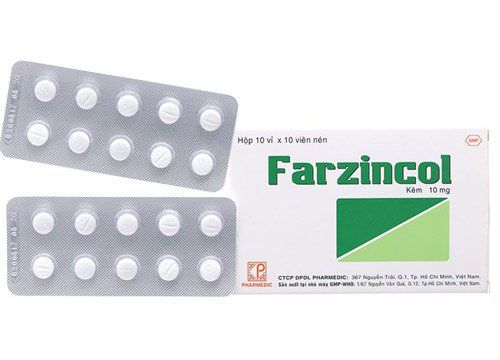This is an automatically translated article.
The article was professionally consulted by Resident Doctor Ho Thi Hong Tho - Neonatologist - Pediatrics - Neonatology Department, Vinmec Phu Quoc International General HospitalMalnutrition in children is often determined by factors such as weight and height. There are many causes for the child's malnourishment, such as inappropriate child care, due to the child's diet leading to a lack of nutrients, micronutrients,...
1. Factors that make children vulnerable to malnutrition
Malnutrition in children is often determined based on factors such as height and weight, in other words, if the weight is lower than the age but the height is still normal, it is called underweight malnutrition. while the normal weight and height of the child is lower than the age is called stunting. In case both height and weight are lower than age, it is called stunting and underweight malnutrition.There are many reasons why children are malnourished, in which the common factors that make children vulnerable to malnutrition are:
At birth, babies weighing less than 2.5 kilograms, premature babies, cleft lip and jaw defects frogs, fetal malnutrition, congenital heart disease, ... Children are not exclusively breastfed in the first 6 months or children are weaned early. Because breast milk is the most complete source of nutrition, if a baby is not exclusively breastfed for the first 6 months of life or weaned early, it increases the risk of a weakened immune system and disease in young children. It is best to breastfeed a baby until 24 months of age and not to wean the baby until supplemental food is given or when the baby is sick. Children's diets are not suitable for their age, such as eating supplements too early, monotonous foods lead to children lacking nutrients, not enough food groups such as starch, fat, protein, vitamins and minerals. Or the case of micronutrient deficiency in children such as iron, zinc, iodine, vitamin A. Supplementing nutrition for children too late or too early: parents give their children supplements too early or too late, the food ingredients are not guaranteed to be of good quality. Early introduction of complementary foods will lead to less breastfeeding, which increases the risk of diseases due to lack of nutrients and immune factors in breast milk. In addition, early nutritional supplementation for children also makes children susceptible to allergies because the child's digestive system cannot digest all the proteins in the food. Introducing complementary foods too late will make children vulnerable to malnutrition, because from 6 months of age, breast milk will no longer meet the nutritional needs of children. In the first two years of life, children often suffer from many diseases, especially infectious diseases such as pneumonia, diarrhea, measles, helminths, etc. Malnutrition in children can also be inherited from parents. . Cultural, economic and social factors: malnourished children often occur in children living in large, poor households... In addition, outdated practices in nurturing and services Poor health care or poor scientific care are also the causes leading to malnourished children.

Trẻ sinh non có thể là nguyên nhân khiến em bé suy dinh dưỡng
2. Prevention of malnutrition in children
To prevent malnutrition, parents need to limit risk factors by taking good care of nutrition for pregnant women and for young children, especially in the first 2 years of life.2.1 Nutrition and health care for pregnant women Eat a variety of foods and have all 4 main food groups, including: starches, grains, animal proteins, fats, beans, green vegetables and flowers fruit. From the time of pregnancy to 1 month after giving birth, pregnant women need to take more iron tablets. During the first 12 weeks of pregnancy take folic acid. Periodic antenatal check-ups and monitoring of fetal weight gain quarterly for timely nutritional supplementation. Neonatal tetanus vaccination.

Mẹ bầu cần uống thêm viên sắt để phòng ngừa em bé suy dinh dưỡng
2.2 Health care and nutrition for young children
Breastfeed exclusively for the first six months and continue breastfeeding until 24 months of age. Give children complementary foods starting from the 5th month. The diet needs to be full of 4 groups of nutrients including starch, protein, fat, fiber and fortified with fat by foods such as oil, peanuts, fat, sesame,... When a child is sick, parents should not be excessively abstinent. Continue to breastfeed your baby and eat several meals a day, choosing foods that are easy to digest and have enough nutrients. Fully vaccinated children. Micronutrients such as vitamin A, vitamin D, biological zinc can be added to help children prevent underweight and stunting malnutrition. Practice environmental sanitation, use clean water and create a habit of washing hands before feeding children and before preparing food. Ensure food safety . Periodic deworming. Realize a happy family and have a healthy cultural lifestyle. There is a growth chart to track your child's development. In summary, child malnutrition is a common condition and is caused by many different causes such as inappropriate child care regimens, children's diets leading to nutritional deficiencies, micronutrient deficiencies, etc. .. Therefore, parents need to take good care of their children's nutrition right from the time they are in the womb. When a child shows signs of anorexia, weight loss or failure to develop according to the growth chart, the child should be taken to a medical facility for evaluation, counseling and appropriate interventions.
In addition, parents also need to pay attention to supplement the necessary micronutrients such as: Selenium, Chromium, Vitamins B1 and B6, Ginger, acerola fruit extract (vitamin C),... Especially biological zinc. to improve the taste, help children eat well, reach the correct height and weight, and exceed the standard, have a good immune system, strengthen resistance to less sickness and less digestive problems.
For more nutritional knowledge and child care for each age, parents should regularly visit the website vimec.com and make an appointment with the leading doctors, pediatric and nutrition experts of the National General Hospital. Vinmec when needing advice on children's health.














